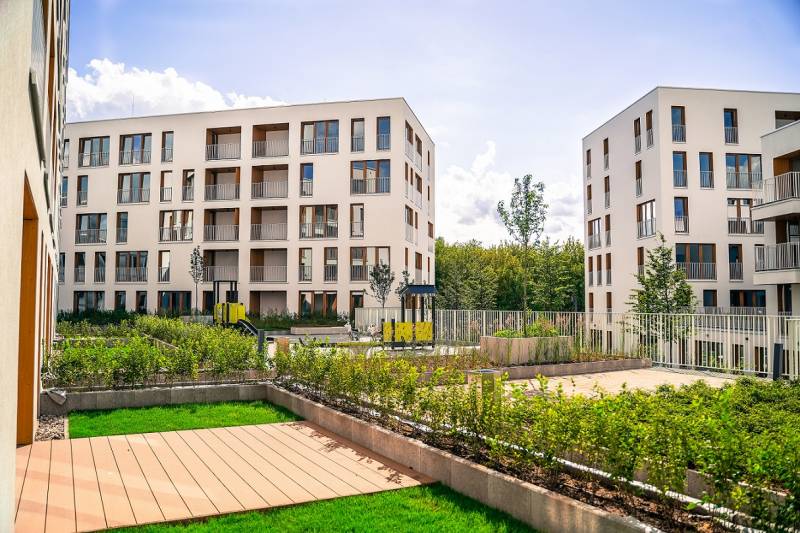

The Echo-Archicom 2030 strategy is to follow a road map that lays out year by year how both companies are to decarbonize through zero-emission developments while further increasing the role of greenery in the Group’s projects and supporting appropriate city development. The developers also intend to provide their employees with equal career and training opportunities, maximize construction site safety and strengthen its corporate governance.
The Echo-Archicom 2030 sustainable development strategy comprises three parts that correspond to the environment (E), society (S) and corporate governance (G). All the goals conform to UN Sustainable Development Goals and they are both specific and measurable.
“We as a Group take a responsible approach to running a business. We provide people with comfortable places to live as well as good spaces for work and entertainment. We are aware of the social importance of our business but also of its costs to the environment. This is why for years, we have pursued activities to care for the environment as well as support communities and all our stakeholders, while cutting costs and compensating for any damage done to the surroundings through our development business. Our Echo-Archicom ESG strategy 2030 lays out these activities and our priorities while emphasizing the values we follow. This is a great challenge, but given the growing scale of our operations, we believe that this is our responsibility as a leading developer,” says Nicklas Lindberg, the CEO of Echo Investment and the chairman of the supervisory board of Archicom.
When drawing up the Group strategy, Echo Investment and Archicom assumed that construction sites and delivered buildings have an unquestionable impact on the environment. For this reason, the two companies mostly focus on reducing their projects’ carbon footprint while maximizing the energy efficiency of their completed buildings. These are long-term goals so the Group has laid out a seven-year plan to achieve them so that, by 2030, all of its completed buildings will be zero-emission.
“Cities consume over two thirds of the world's energy and are responsible for nearly 70% of CO2 emissions. Due to the long life-cycle of real estate and the impact the residential development industry has on the environment, developers are going to play an important role in the fight against climate change. Designing housing estates where residents can lead a healthy and ecological lifestyle is the obligation of every responsible developer. By taking on such strategic commitments, we will contribute to creating better, more-sustainable cities while also ensuring that our employees are treated fairly,” says Waldemar Olbryk, the CEO of Archicom.
By 2026, only renewable energy is planned to be used by the Group in its offices, in each of its Cityspace locations, in all the buildings it constructs and owns, as well as on all of its construction sites. The strategy of the two companies is for their projects to counteract city sprawl. Both companies have also undertaken to plant trees with twice the ecological value as those that had to be felled in any given year. In the social sphere, the corporate goals are to ensure equality between men and women in their pay, promotions and in the positions they hold as well as to ensure the safety and the high standard of working conditions on all of its construction sites. For corporate governance, the company has set itself the tasks of raising awareness of business ethics among its employees, improving the understanding of ESG at the Management and the Supervisory Board level and also of reviewing its good practices every year.
The co-creation of sustainable cities is one of the most important areas of the Group’s sustainable development activities. This year the company is to published its third ‘Sustainability Report’ laying out its goals, its management and its activities in the ESG sphere. It will present the Group’s approach of creating destinations – mixed-use projects that incorporate the past of their locations while conforming to the latest global trends in urban planning, including the latest advances in ecology, shared economy and the promotion of public transport, walking and cycling.